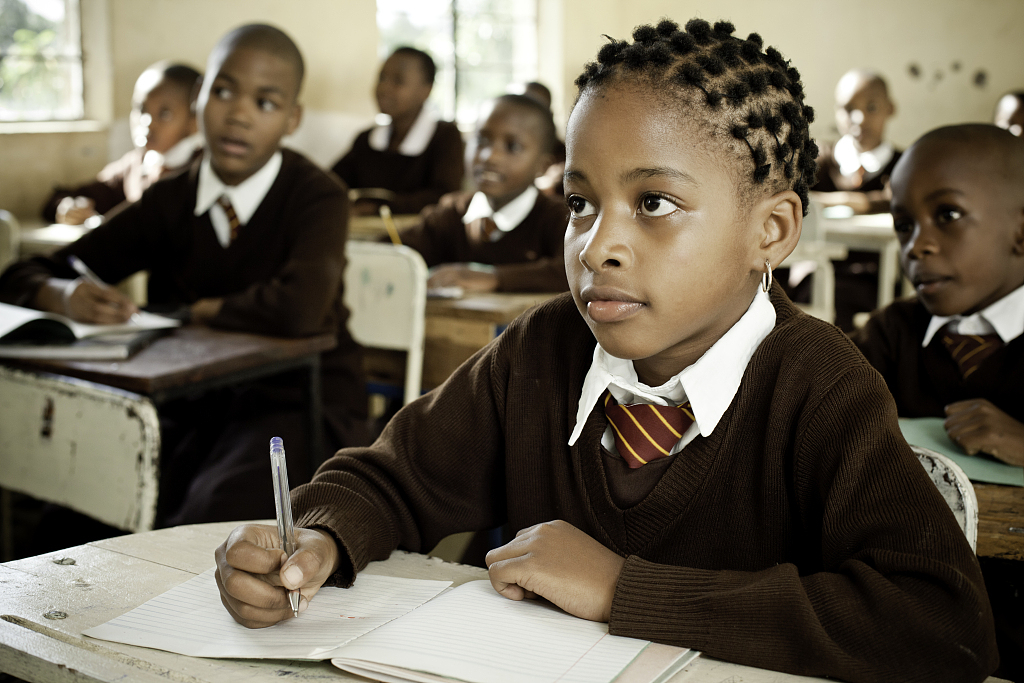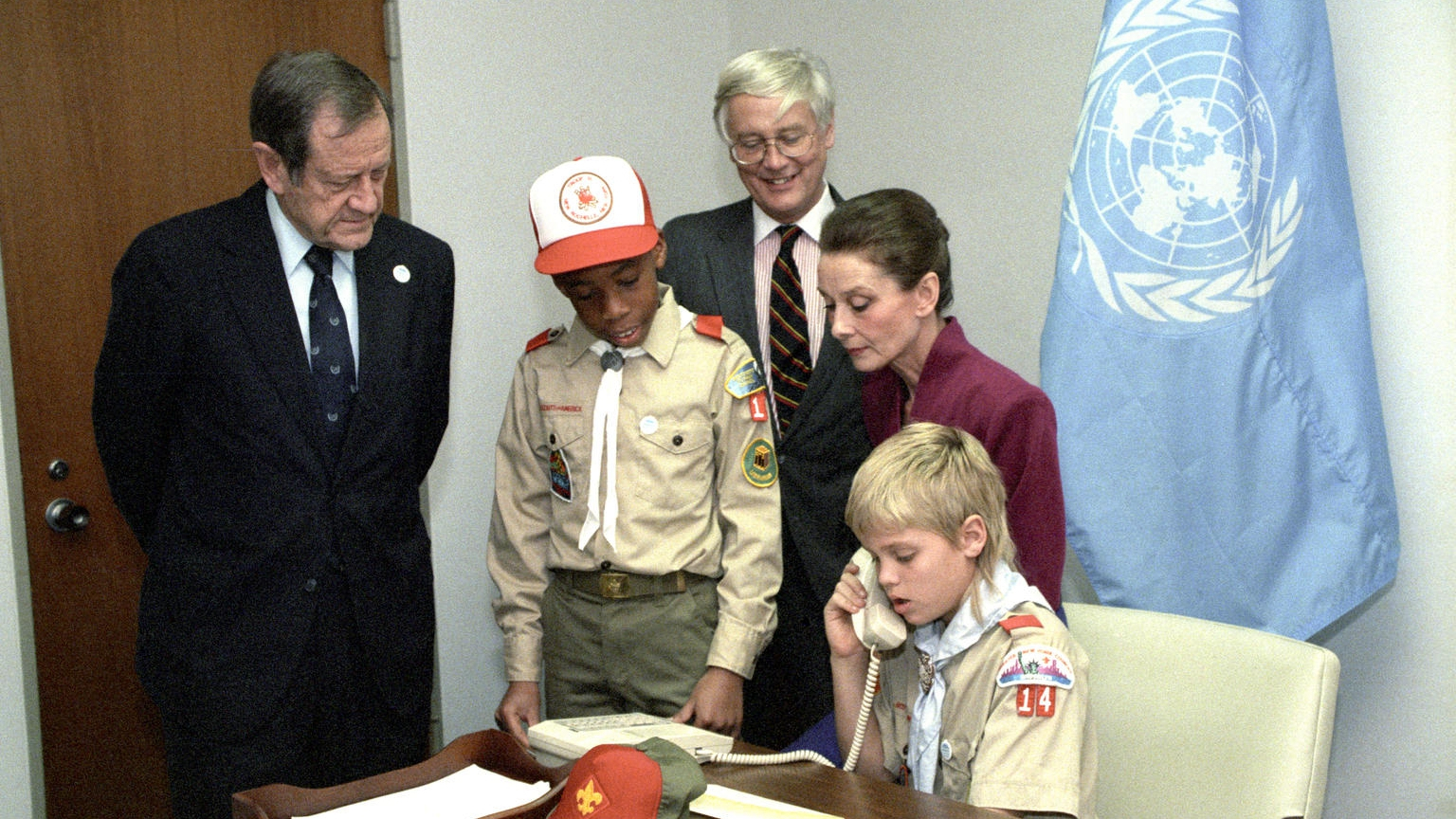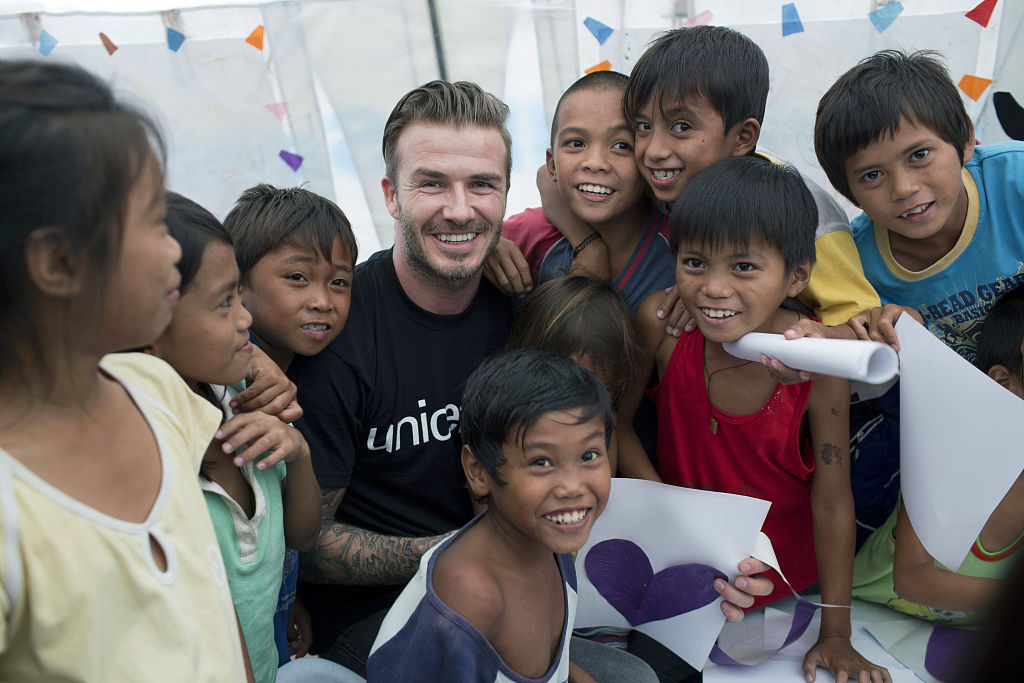
The United Nations Convention on the Rights of the Child is the most widely ratified human rights treaty in history but for many of the world's poorest children that encouraging fact may not amount to very much.
A report just issued on the 30th anniversary of the convention acknowledges that great strides have been made in improving the lives of the youngest among us but admits the most vulnerable children haven't enjoyed the benefits.
"Poverty, inequality, discrimination and distance continue to deny millions of children their rights every year, as 15,000 children under 5 still die every day, mostly from treatable diseases and other preventable causes," UNICEF Executive Director Henrietta Fore says in an open letter to the world's children marking the anniversary.
Indeed, says the introduction to the report, dramatic increases in child survival and access to health care and education have been diminished, to some degree, by issues of poor quality and stagnant progress at the global level in the past decade.
U.S. opts out of treaty
The convention was adopted by the UN General Assembly on November 20, 1989. Only one country has not ratified it – the United States – which came under fire at a news conference held ahead of the release of the report.
The U.S. has the world's highest rate of children in detention, including more than 100,000 in immigration-related custody in violation of international law, complained independent expert Manfred Nowak, the author of the UN Global Study on Children Deprived of Liberty, whose release was timed to coincide with the anniversary report.

In an office at UN headquarters, (left to right) UNICEF Executive Director James Grant, boy scout Brian, Under-Secretary-General Jan Martensen, UNICEF Goodwill Ambassador Audrey Hepburn and boy scout Michael make a collective telephone call to children at UN offices in Geneva, Switzerland, to announce the adoption of the Convention on the Rights of the Child on November 20, 1989. /©UNICEF/John Isaac
In an office at UN headquarters, (left to right) UNICEF Executive Director James Grant, boy scout Brian, Under-Secretary-General Jan Martensen, UNICEF Goodwill Ambassador Audrey Hepburn and boy scout Michael make a collective telephone call to children at UN offices in Geneva, Switzerland, to announce the adoption of the Convention on the Rights of the Child on November 20, 1989. /©UNICEF/John Isaac
Nowak said the convention's restrictions "do not formally apply" to the U.S. because of the lack of ratification but the country may still be held liable for its treatment of children because it is a party to other treaties on civil rights and torture.
More broadly, the assessment of the impact of the convention says progress on realizing the rights of the poorest and most marginalized children has been too slow and, in some cases, is at risk of reversal.
"At the same time, the world's children face alarming new threats to their survival and well-being, such as the resurgence of measles, an increase in overweight in childhood, online bullying, abuse and exploitation, and the impact of a changing climate," it says.
'Living longer, better lives'
On the positive side, the report notes that the global under-5 mortality rate has fallen by about 60 percent over the past 30 years.
More children are also getting a primary education – with the proportion of primary-school-aged children not in school declining from 18 to 8 percent.
In addition, the report notes that the existence of the convention itself has influenced child-friendly laws and practices globally.
"There have been impressive gains for children over the past three decades, as more and more are living longer, better and healthier lives," concedes Fore. However, she adds, "the odds continue to be stacked against the poorest and most vulnerable."
Some issues remain persistently stubborn.
In some countries, for example, children under age 5 from the poorest households are about three times as likely to die as those from the richest households. Despite a decline in child marriage rates globally, the poorest girls in some nations are more at risk today than they were in 1989.

UNICEF goodwill ambassador David Beckham with children in London on Feb. 11, 2015. Goodwill ambassadors help raise awareness of children's rights and issues affecting youth, such as lack of education, safe places to play and learn, and the impact of bullying and poverty. /VCG Photo
UNICEF goodwill ambassador David Beckham with children in London on Feb. 11, 2015. Goodwill ambassadors help raise awareness of children's rights and issues affecting youth, such as lack of education, safe places to play and learn, and the impact of bullying and poverty. /VCG Photo
And there are newer threats like the changing climate.
"Climate change will have its most direct impact on child survival through three direct channels: changing disease environments, greater food insecurity, and threats to water and sanitation," says the report.
'Convention at crossroads'
To accelerate progress in advancing child rights, it calls for more data and evidence, scaling up proven solutions and interventions, expanding resources, involving young people in co-creating solutions, and applying the principles of equity and gender equality in programming.
"Never resting on our laurels, we must, instead, work together to ensure that the Convention remains a living document and becomes a guiding light for every country, community and family," the report concludes.
But will the U.S. be among those at the forefront? Jo Becker, the children's rights advocacy director for Human Rights Watch, says it should be, given how the convention has helped improve the lives of many children around the world.
She rejects the main argument raised in America against ratifying the convention – that it is "anti-family" and a threat to parental authority – arguing that the treaty instructs governments to "respect the responsibilities, rights and duties of parents."
"The U.S. should end its outlier status and join the rest of the world in committing to children's rights," she wrote on the American news website, The Hill.
With Fore conceding that the convention "stands at a crossroads between its illustrious past and its future potential," America's coming on board could help give the treaty and how we treat our children a new lease on life.